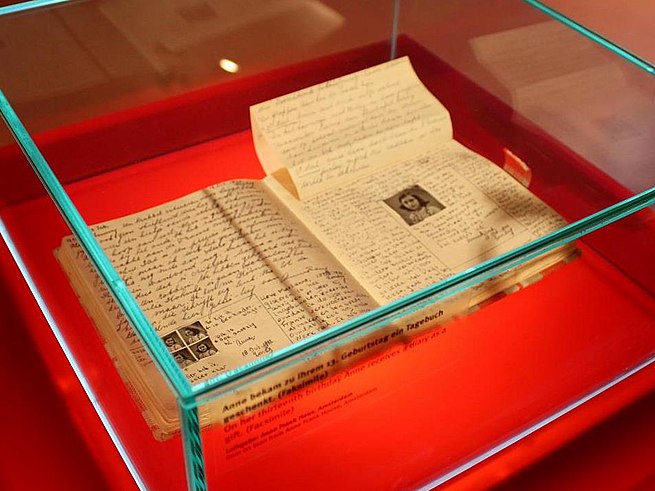
Main Difference
The main difference between Diary and Journal is that the Diary is a written record with discrete entries arranged by date and Journal is a written medium.
-
Diary
A diary is a record (originally in handwritten format) with discrete entries arranged by date reporting on what has happened over the course of a day or other period. A personal diary may include a person’s experiences, thoughts, and/or feelings, excluding comments on current events outside the writer’s direct experience. Someone who keeps a diary is known as a diarist. Diaries undertaken for institutional purposes play a role in many aspects of human civilization, including government records (e.g. Hansard), business ledgers, and military records. In British English, the word may also denote a preprinted journal format.
Today the term is generally employed for personal diaries, normally intended to remain private or to have a limited circulation amongst friends or relatives. The word “journal” may be sometimes used for “diary,” but generally a diary has (or intends to have) daily entries, whereas journal-writing can be less frequent.
Although a diary may provide information for a memoir, autobiography or biography, it is generally written not with the intention of being published as it stands, but for the author’s own use. In recent years, however, there is internal evidence in some diaries (e.g. those of Ned Rorem, Alan Clark, Tony Benn or Simon Gray) that they are written with eventual publication in mind, with the intention of self-vindication (pre- or posthumous), or simply for profit.
By extension the term diary is also used to mean a printed publication of a written diary; and may also refer to other terms of journal including electronic formats (e.g. blogs).
-
Journal
A journal (through French from Latin diurnalis, daily) has several related meanings:
a record of events or business; a private journal is usually referred to as a diary
a newspaper or other periodical, in the literal sense of one published each day
many publications issued at stated intervals, such as academic journals (including scientific journals), or the record of the transactions of a society, are often called journals. In academic use, a journal refers to a serious, scholarly publication that is peer-reviewed. A non-scholarly magazine written for an educated audience about an industry or an area of professional activity is usually called a trade magazine.
The word “journalist”, for one whose business is writing for the public press and nowadays also other media, has been in use since the end of the 17th century.
-
Diary (noun)
A daily log of experiences, especially those of the writer.
“They kept separate diaries. His was on paper and her diary was on her computer’s hard drive.”
-
Diary (noun)
A personal organizer or appointment diary.
-
Diary (adjective)
Lasting for one day.
-
Diary (verb)
To keep a diary or journal.
-
Journal (adjective)
Daily.
-
Journal (noun)
A diary or daily record of a person, organization, vessel etc.; daybook.
-
Journal (noun)
A newspaper or magazine dealing with a particular subject.
-
Journal (noun)
A chronological record of payments.
-
Journal (noun)
A chronological record of changes made to a database or other system; along with a backup or image copy that allows recovery after a failure or reinstatement to a previous time; a log.
-
Journal (noun)
The part of a shaft or axle that rests on bearings.
-
Journal (verb)
To archive or record something.
-
Journal (verb)
To scrapbook.
-
Journal (verb)
To insert (a shaft, etc.) in a journal bearing.
-
Diary (noun)
a book in which one keeps a daily record of events and experiences.
-
Diary (noun)
a book with spaces for each day of the year in which one notes appointments or information.
-
Diary (noun)
a column in a newspaper or magazine giving news or gossip on a particular topic
“the City Diary”
